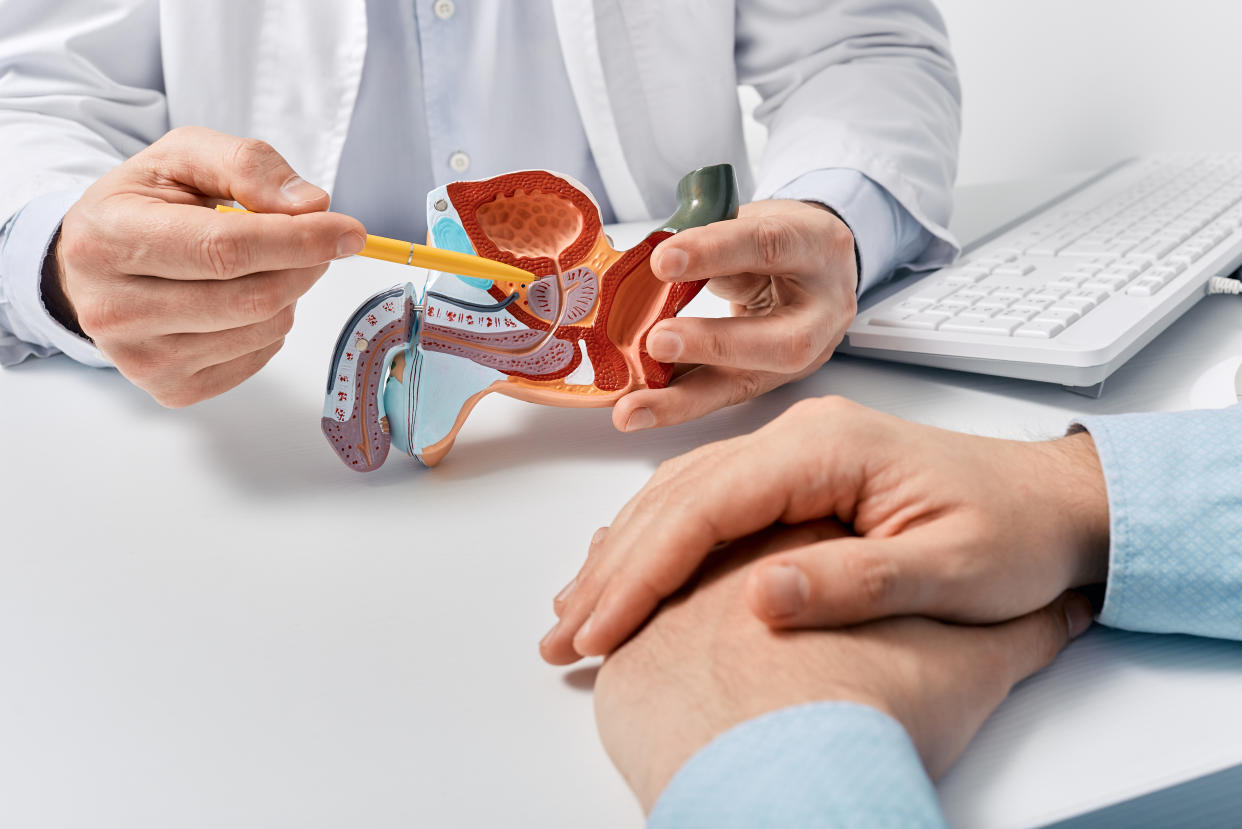What causes an enlarged prostate, as King Charles set for surgery

Most men will experience changes to their prostate as they age - King Charles included.
The monarch, 75, is scheduled for surgery to treat an enlarged prostate, Buckingham Palace announced on Wednesday 17 January.
In a statement, the palace said: “In common with thousands of men each year, the king has sought treatment for an enlarged prostate.
“His Majesty’s condition is benign and he will attend hospital next week for a corrective procedure. The King’s public engagements will be postponed for a short period of recuperation.”
The King is reportedly keen to share details of his diagnosis, in an effort to encourage other men to get their prostate checked if they are experiencing symptoms.

It might sound scary, but an enlarged prostate is also known as benign prostate enlargement (BPE) and is a condition that affects how you pee. It is not a cancer, and not usually a serious threat to health, according to the NHS.
It is very common in men over the age of 50, with one in three men over that age experiencing some symptoms of an enlarged prostate.
Should I be worried about an enlarged prostate?
The NHS says that although many men may worry that having an enlarged prostate means they are at increased risk of developing prostate cancer, this is not the case.
Men with an enlarged prostate are not at greater risk of prostate cancer than men without one.
What causes an enlarged prostate?

The prostate is a gland located between the penis and the bladder. It is not known exactly why it becomes enlarged, but there are certain factors that may increase your risk of having an enlarged prostate.
According to Prostate Cancer UK, these include:
Age: As you get older, your risk of having an enlarged prostate increases. However, not everyone who develops an enlarged prostate has symptoms, and some men have symptoms that don’t bother them.
Hormone levels: Hormone levels change as you age, which may cause the prostate to grow.
Lifestyle factors: There are some studies that show obese men and men with diabetes are at higher risk of developing an enlarged prostate. Some research also suggests you may be more at risk if your father or brother has one. However, further research is needed to investigate possible causes of an enlarged prostate.
Symptoms of enlarged prostate
When the prostate becomes enlarged, it can press on the urethra, causing it to narrow. This can slow down or sometimes even stop the flow of urine, causing issues with going to the toilet.
Symptoms may include:
A weak flow of urine
A feeling that the bladder hasn’t emptied
Difficulty starting to urinate
Dribbling urine after you finish
Needing to urinate more often, especially at night
A sudden urge to urinate, sometimes leaking before you get to the toilet
Prostate Cancer UK adds that blood in the urine may be a symptom, but this is rare and usually caused by something else. You should visit your GP if you have blood in your urine, and if you have any other symptoms.
Watch: King Charles III to undergo surgery
Treatment for enlarged prostate
The kind of treatment you may be recommended depends on how severe your symptoms are. If you are experiencing mild symptoms, immediate treatment is usually not necessary and your doctor will discuss with you if you need more check-ups.
The NHS says you will likely be advised to make some lifestyle changes to improve the condition. These can include:
Drinking less alcohol, caffeine and fizzy drinks
Limiting your intake of artificial sweeteners
Exercising regularly
Drinking less in the evening
You may be recommended some medication to reduce the size of the prostate and relax your bladder if you have moderate to severe symptoms.
Surgery is usually only considered for moderate to severe symptoms that have not responded to medicine.
Read more about prostate conditions:
Prostate cancer signs and symptoms as Andy Taylor reveals he thought he had arthritis (Yahoo Life UK, 5-min read)
Prostate cancer: 'Early screening saves lives' says Yorkshire teacher as £42m trial announced (The Yorkshire Post, 3-min read)
British men rarely sit down to wee – what do you do? (Yahoo Life UK, 3-min read)


